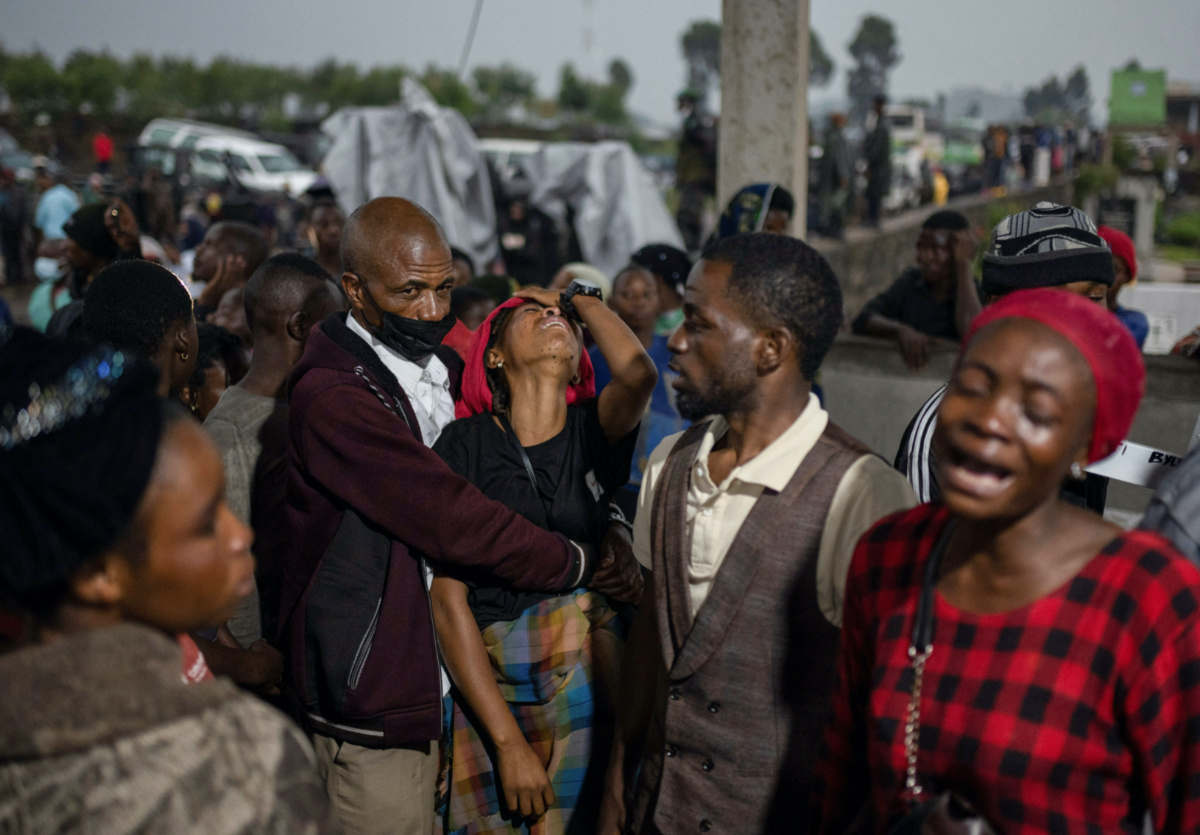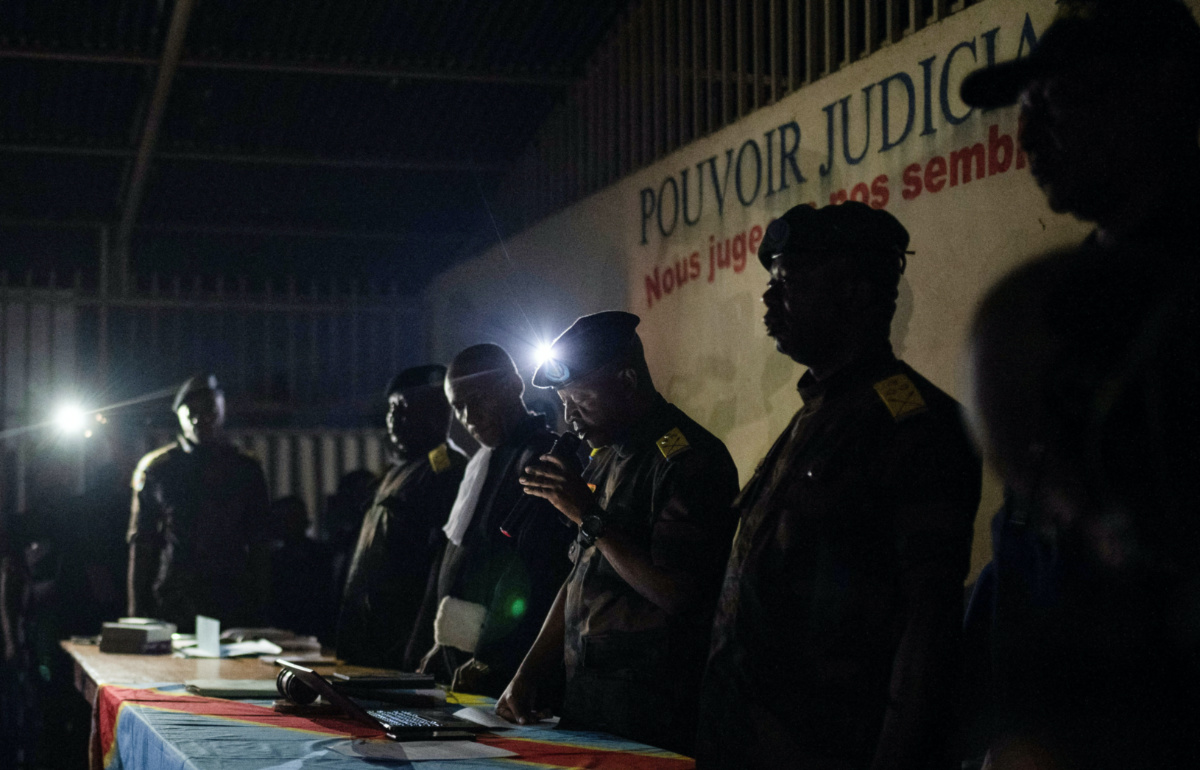Goma, Democratic Republic of Congo
Reuters
The smell of decomposing bodies filled the air as cemetery workers in eastern Congo unloaded dozens of coffins at the final resting place for victims of one of the deadliest crackdowns on protests in recent local memory.
As rain poured down on the funerals in mid-September, distraught family members cried out and clasped each other for support. The burials continued as darkness fell.

Tumaini Barhumana reacts as she mourns over the coffin of her husband Espoir Bulangalire who was killed during a demonstration by followers of the Wazalendo church against the presence of United Nations Organization Stabilization Mission in the Democratic Republic of the Congo (MONUSCO) and East Africa Community Regional Force (EACRF), before burial at the Makao cemetery in Goma, North Kivu province, Democratic Republic of the Congo, on 18th September, 2023. PICTURE: Reuters/Arlette Bashizi
At least 56 people were killed on 30th August, according to a military prosecutor, after Congolese soldiers in the city of Goma opened fire on protesters ahead of a demonstration against the presence of UN peacekeepers.
A military court on Monday sentenced some of those accused of orchestrating the bloodshed, and the government has paid for burials and offered compensation to the grieving and angry families.
Many are struggling to come to terms with their loss.
“It’s criminal, what they’ve done,” said 26-year-old widow Tumaini Barumana Biluge, decrying the two weeks she and the other bereaved had had to wait to identify the victims.
“We couldn’t recognise people’s faces anymore, relatives only recognised their own by the clothes they were wearing,” she said at her simple home in a hardscrabble suburb of Goma, the day after the 18th September burial.
Her husband’s brother was also killed on 30th August. She and her sister-in-law, Zawadi Balthazar, 22, must now raise six children between them without their fathers. They all wept when they went back to visit the graves on 19th September.
“May the perpetrators of these killings be condemned, may they be thrown into prison forever,” said Balthazar.
Sentences
On Monday, three of six soldiers on trial for their role in the killings were sentenced to 10 years behind bars, while the head of the Republic Guard unit in Goma was handed the death penalty, which is expected to be commuted to life imprisonment. The two others were acquitted.

Congolese military judges use spotlights as they take part in the hearing for the murder of 56 civilians during a demonstration against the presence of United Nations Organization Stabilization Mission in the Democratic Republic of the Congo (MONUSCO) and East Africa Community Regional Force (EACRF) at the military auditorium in Goma, North Kivu province, Democratic Republic of the Congo, on 7th September, 2023. PICTURE: Reuters/Arlette Bashizi
During the trial, the prosecutor described the sound of crackling of gunfire as soldiers started firing before dawn on 30th August in what he called a massacre.
Decades of conflict between the army and myriad rebel groups has destabilised eastern Congo and civilians rarely see justice for the abuses committed by both sides.
The new military governor of eastern North Kivu province, Major-General Peter Cirimwami, said the army needs to work harder to build people’s trust.
“This is why I was sent by the higher-ups so that we can develop an approach with the local community that will change attitudes,” he told journalists on 20th September. during his first field visit in the province.






